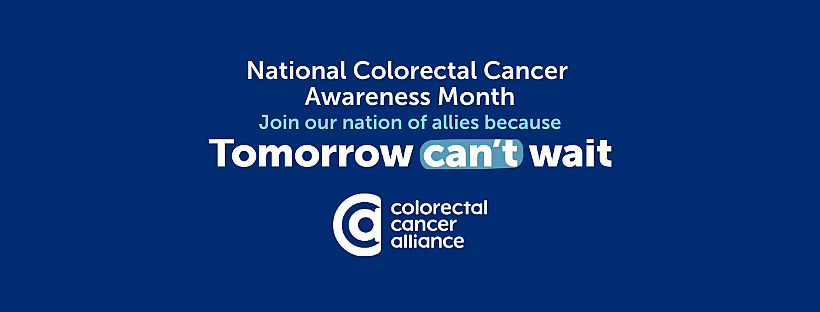Some Things Can Wait. Colorectal Cancer Doesn’t.

Colorectal cancer is the third most common cancer in the U.S., and second-leading cause of death, taking 50,000 lives each year. However, thanks to years of raising awareness and education, there are currently over 1 million colorectal cancer survivors alive in the U.S. With the goal of keeping this number rising, March is National Colorectal Cancer Awareness Month.
Throughout the month, fundraisers and walks are held nationwide to bring survivors and advocates together for the cause. March 6 is Dress in Blue Day as a part of the ongoing social media campaign #TomorrowCantWait, urging individuals to get screenings and listen to their bodies when something is wrong.
Symptoms of colorectal cancer include changes in bowel habits, abdominal discomfort, rectal bleeding and fatigue. However, these symptoms are similar to those of other conditions, making people look past them initially. Oftentimes, by the time they go in for evaluation, the cancer has advanced. This is why colorectal cancer is often referred to as “the silent killer.”
This makes regular screenings an absolute necessity to anybody who is over 50 years old, or has a family history of colorectal cancer or lives with pre-existing conditions like genetic disorders, cancers or inflammatory bowel disease.
Luckily, when detected early, colorectal cancer is highly treatable. Most commonly, treatment includes some form of surgery. Early-stage colorectal cancer typically only requires a minimally invasive approach. But as the cancer advances, so does the complexity of the treatment. For serious cases, chemotherapy and radiation may be necessary.
Sanda Tan, M.D., Ph.D., a UF Health colorectal surgeon, has watched UF Health’s Gastrointestinal Oncology Center develop with a strong team of fellowship-trained specialists.
“We are a group of physicians who work together as a team,” said Tan, an associate professor of surgery in the UF College of Medicine. “We meet every Thursday at tumor board, where every rectal cancer gets presented, so each case has a whole team of physicians sitting in one room to come up with the optimum treatment plan.”
In addition to collaborative care, the program also has several clinical trials in progress to research new treatment techniques and methods. The team is currently evaluating how radiation time can be altered for certain cases and how surgery can be paired with chemotherapy to improve outcomes.
“The bottom line is that you have dedicated physicians working together and resources that are just a phone call away to help patients navigate each step of their care,” Tan said.
To learn more about how you can participate in National Colorectal Cancer Awareness Month, visit Colorectal Cancer Alliance for events near you and UF Health Gastrointestinal Oncology Center for consultation.
About the author
